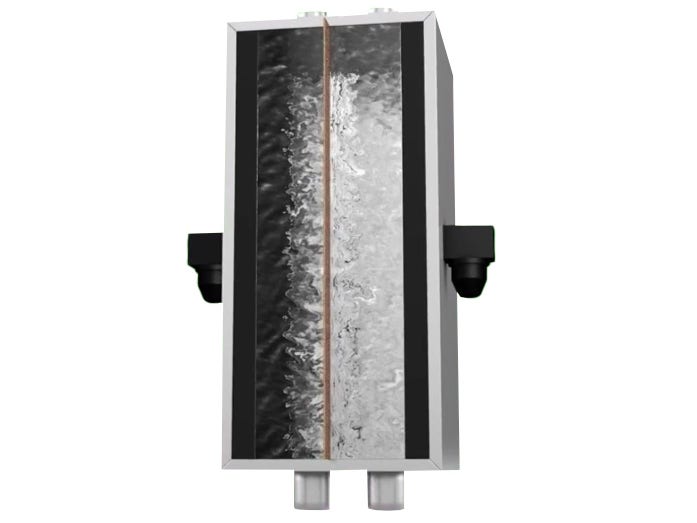MIONEX Membrane
Redox flow batteries hold tremendous potential as a scalable energy storage technology with decoupled energy and power characteristics. Central to their functionality is the membrane, which separates the positive and negative electrolytes while enabling selective ion transport. Membranes in RFBs have an impact on various aspects of system operation:
- Enhancing Energy Efficiency: Membrane ion selectivity is crucial for achieving high energy efficiency in RFBs. A selective membrane allows the passage of only specific ions, such as protons or relevant redox species, while effectively blocking the crossover of other species. This feature minimizes energy losses due to undesirable side reactions, thereby improving overall battery efficiency.
- Promoting Sustainability through Fluor-Free Membranes: Environmental sustainability is a pressing concern for energy storage technologies. The incorporation of fluorine-free membranes in RFBs has gathered significant attention. These alternative membranes use environmentally friendly materials, reducing the ecological footprint associated with production and disposal. We explore the potential of fluor-free membranes to align RFB technology with sustainability goals and create a more eco-friendly energy storage landscape.
- Tailoring for Customer Needs: the versatility of membranes allows for their customization to meet specific customer requirements. By adjusting the membrane's properties, such as thickness and conductivity, RFBs can be optimized for various applications. Membrane engineering enables the development of tailored solutions that enhance the performance of RFBs in grid-scale energy storage, renewable energy integration, and other diverse use cases.
- Safety Considerations: The role of the membrane extends beyond efficiency and sustainability. Membranes contribute to the safety of RFBs by preventing direct contact between the electrolytes and enhancing system reliability. The importance of membrane integrity in ensuring the safe operation of RFBs.
Challenges and Future Prospects

While the significance of membranes in RFBs is evident, some challenges remain, including optimizing ion selectivity, enhancing mechanical and chemical stability, and lowering production costs. We address these challenges and present potential strategies to further improve membrane technology and its impact on RFB performance.
The membrane of redox flow batteries holds immense importance in enhancing energy efficiency, promoting sustainability, and enabling customization to address diverse energy storage needs. By embracing fluor-free alternatives and advancing membrane engineering, RFB technology can unlock its full potential as a sustainable, efficient, and customer-centric solution for the energy challenges of the future. Collaborative efforts among researchers, industry experts, and policymakers are essential to drive further innovation and deployment of RFBs on a global scale.